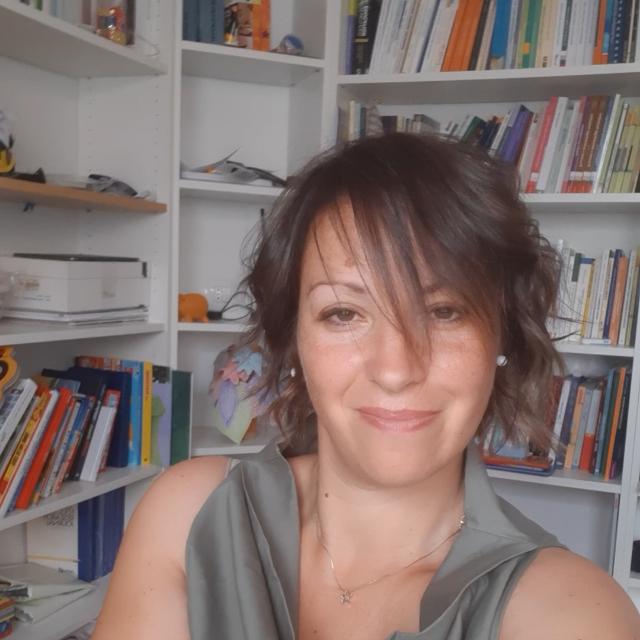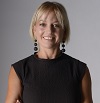Studying at the University of Verona
Here you can find information on the organisational aspects of the Programme, lecture timetables, learning activities and useful contact details for your time at the University, from enrolment to graduation.
Academic calendar
The academic calendar shows the deadlines and scheduled events that are relevant to students, teaching and technical-administrative staff of the University. Public holidays and University closures are also indicated. The academic year normally begins on 1 October each year and ends on 30 September of the following year.
Course calendar
The Academic Calendar sets out the degree programme lecture and exam timetables, as well as the relevant university closure dates..
| Period | From | To |
|---|---|---|
| Sem. 1A | Sep 26, 2022 | Nov 5, 2022 |
| Sem. 1B | Nov 14, 2022 | Dec 23, 2022 |
| Sem. 2A | Feb 13, 2023 | Mar 30, 2023 |
| Sem. 2B | Apr 11, 2023 | May 27, 2023 |
| Session | From | To |
|---|---|---|
| Sessione Invernale | Jan 9, 2023 | Feb 11, 2023 |
| Sessione Estiva | Jun 5, 2023 | Jul 22, 2023 |
| Sessione Autunnale | Aug 28, 2023 | Nov 23, 2023 |
| Sessione straordinaria invernale | Jan 8, 2024 | Feb 17, 2024 |
| Session | From | To |
|---|---|---|
| Sessione Estiva | Jul 10, 2023 | Jul 15, 2023 |
| Sessione Autunnale | Nov 6, 2023 | Nov 11, 2023 |
| Sessione invernale | Apr 2, 2024 | Apr 8, 2024 |
| Period | From | To |
|---|---|---|
| Festa di Ognissanti | Nov 1, 2022 | Nov 1, 2022 |
| Festività Della Immacolata Concezione | Dec 8, 2022 | Dec 8, 2022 |
| Vacanze natalizie | Dec 24, 2022 | Jan 8, 2023 |
| Vacanze di Pasqua | Apr 7, 2023 | Apr 10, 2023 |
| Festa della Liberazione | Apr 25, 2023 | Apr 25, 2023 |
| Festa del lavoro | May 1, 2023 | May 1, 2023 |
| Festa del Santo Patrono | May 21, 2023 | May 21, 2023 |
| Festa della Repubblica | Jun 2, 2023 | Jun 2, 2023 |
| Chiusura estiva | Aug 14, 2023 | Aug 19, 2023 |
Exam calendar
Exam dates and rounds are managed by the relevant Humanistic Studies Teaching and Student Services Unit.
To view all the exam sessions available, please use the Exam dashboard on ESSE3.
If you forgot your login details or have problems logging in, please contact the relevant IT HelpDesk, or check the login details recovery web page.
Should you have any doubts or questions, please check the Enrollment FAQs
Academic staff
 tamara.fioroni@univr.it
tamara.fioroni@univr.it
 giacomo.mormino@univr.it
giacomo.mormino@univr.it
Study Plan
The Study Plan includes all modules, teaching and learning activities that each student will need to undertake during their time at the University.
Please select your Study Plan based on your enrollment year.
1° Year
| Modules | Credits | TAF | SSD |
|---|
2° Year activated in the A.Y. 2023/2024
| Modules | Credits | TAF | SSD |
|---|
3° Year It will be activated in the A.Y. 2024/2025
| Modules | Credits | TAF | SSD |
|---|
| Modules | Credits | TAF | SSD |
|---|
| Modules | Credits | TAF | SSD |
|---|
| Modules | Credits | TAF | SSD |
|---|
| Modules | Credits | TAF | SSD |
|---|
Legend | Type of training activity (TTA)
TAF (Type of Educational Activity) All courses and activities are classified into different types of educational activities, indicated by a letter.
Political science and strategic studies (2023/2024)
Teaching code
4S010544
Teacher
Coordinator
Credits
9
Language
Italian
Scientific Disciplinary Sector (SSD)
SPS/04 - POLITICAL SCIENCE
Period
Sem. 1A, Sem. 1B
Courses Single
Authorized
Learning objectives
Students will know and understand:
- the fundamental principles, concepts, models, and theories of political science;
- the contemporary debates related to the socio-political transformations taking place in the globalized world;
- the contribution of political science literature to the theme of international strategy and security;
- emerging issues related to the governance of risk and vulnerability.
Students will be able to apply the acquired knowledge to contemporary political and strategic processes and phenomena.
Written and oral examination of the texts indicated in the syllabus and of the provided material.
Prerequisites and basic notions
No prerequisits
Program
What is political science? What does it mean to study politics scientifically? What are the theories, methods and objects of political science? What is the contribution of political science to the understanding of politics and international relations? How do strategic and security studies fit within this disciplinary field?
The course introduces the fundamental elements of political science with a focus on the international dynamics and crises that have determined and determine contemporary political scenarios: from the fall of the Berlin Wall to the collapse of the party system of the so-called "First Republic", from the transformations introduced by globalization to the international consequences of local crises, from the consolidation of the digitization of the world to new forms of political participation and contestation.
The study of the central themes of the discipline such as the state, democracy, systems of government, administration and bureaucracy, parties, representation, political participation, electoral systems, public policy, etc., will be conducted with an approach that is both theoretical and empirical. This means that the conceptual dimension of the discipline will be addressed through the scientific contribution of contemporary researchers to specific issues and problems.
For any needs or requests, the teacher receives by appointment upon request forwarded to massimo.prearo@univr.it
No distinction is made between attending and non-attending students for this course. The progran is therefore the same for all the students.
For the study and preparation of the exam, students can rely on two kind of texts:
- Textbook materials: the political science textbook indicated in the bibliography, and additional additional chapters indicated by the lecturer (the full list of which will be communicated before the start of the course).
- Readings: scholarly articles and book chapters indicated by the lecturer (the full list of which will be communicated before the start of the course).
Bibliography
Didactic methods
Each lesson and, in general, the course will take place alternating moments of frontal lessons and moments of participatory lessons, exchanges and discussions, also and above all starting from the commentary on the texts in the program.
To facilitate access to lessons for students who cannot attend for any reason, lessons will be recorded and made available starting from the last lesson of the course, i.e. 12 December 2023, and will remain available until the last exam session relating to the course of the cademic year 2023/2024.
Information, communications, tools and materials will be transmitted and made available on the Moodle of the course.
Registration on the Moodle page of the course is therefore mandatory for all students.
Learning assessment procedures
The written exam consists of two parts.
The first involves answering 3 open questions randomly drawn from a battery of about 70 questions. This battery of questions will be made available on the Moodle page about halfway through the course. The study for this part of the exam will be carried out on textbook materials.
The second consists in a critical review of one of the readings indicated in the bibliography, randomly assigned during the exam. During the course tools for the preparation of the commentary will be provided.
NB: Any slides made available by the teacher in no way replace the indicated texts (textbooks materials + readings), but serve only as a support to the work done in the classroom.
Evaluation criteria
The exam will allow to verify:
- Knowledge of the technical terms, concepts and notions of the discipline;
- The ability to argue scientifically by applying these terms, concepts and notions;
- Competence in developing autonomous analyzes and reflections.
Criteria for the composition of the final grade
The final grade is expressed out of thirty and it is assigned based on an assessment rubric in which the expected skills and competencies are specified
The attribution of the distinction is envisaged in cases in which more than excellent, impeccable and excellent knowledge and skills have been demonstrated during the exam.
Exam language
italiano
Type D and Type F activities
I crediti liberi a scelta dello/a studente (ambito “D”) sono 12 ed hanno lo scopo di offrire allo/a studente la possibilità di personalizzare il proprio percorso formativo permettendo di approfondire uno o più argomenti di particolare interesse legati al proprio percorso accademico. Una quota dei crediti corrispondenti all’attività formativa dell’intero triennio, determinata dal presente Regolamento in dodici CFU, è riservata alla scelta autonoma da parte della/o studente. Questa scelta può essere orientata verso corsi/esami non seguiti/sostenuti in precedenza, sia ancora verso altre attività (come partecipazione a convegni e/o attività seminariali), purché tutte preventivamente approvate dal Collegio Didattico.
Altre informazioni sono reperibili nella Guida per i crediti liberi che è possibile trovare quì
COMPETENZE TRASVERSALI
Scopri i percorsi formativi promossi dal Teaching and learning centre dell'Ateneo, destinati agli studenti iscritti ai corsi di laurea, volti alla promozione delle competenze trasversali:
https://talc.univr.it/it/competenze-trasversali
| years | Modules | TAF | Teacher |
|---|---|---|---|
| 1° | International emergencies and armed conflicts | D |
Olivia Guaraldo
(Coordinator)
|
| years | Modules | TAF | Teacher |
|---|---|---|---|
| 1° | The end of Globalization?: Dialogues on a changing world | D |
Olivia Guaraldo
(Coordinator)
|
| 1° | OMeGA - Horizons, Models and Assisted Parenting | D |
Alessandra Cordiano
(Coordinator)
|
| years | Modules | TAF | Teacher |
|---|---|---|---|
| 1° | Iran, gender differences and political representation | D |
Massimo Prearo
(Coordinator)
|
| 1° | The end of Globalization?: Dialogues on a changing world | D |
Olivia Guaraldo
(Coordinator)
|
| 1° | OMeGA - Horizons, Models and Assisted Parenting | D |
Alessandra Cordiano
(Coordinator)
|
| 1° | University and DSA: Methods and strategies for studying and studying at university | D |
Ivan Traina
(Coordinator)
|
| years | Modules | TAF | Teacher |
|---|---|---|---|
| 1° | The Talks of EThoS Research Centre | D |
Carlo Chiurco
(Coordinator)
|
Career prospects
Module/Programme news
News for students
There you will find information, resources and services useful during your time at the University (Student’s exam record, your study plan on ESSE3, Distance Learning courses, university email account, office forms, administrative procedures, etc.). You can log into MyUnivr with your GIA login details: only in this way will you be able to receive notification of all the notices from your teachers and your secretariat via email and soon also via the Univr app.
Prova Finale
La prova finale, cui sono attribuiti 6 CFU, consiste nella preparazione e discussione di un elaborato scritto volto ad approfondire una tematica concordata con la/il docente relatrice/tore. La tematica dell’elaborato dovrà essere inerente al curriculum della/o candidata/o. La/lo studente dovrà avvalersi della supervisione del docente relatore, che può essere qualunque docente appartenente al Collegio Didattico cui afferisce il Corso di Studio, inclusi i docenti a contratto. La/lo studente dovrà aver superato almeno un esame afferente al settore scientifico-disciplinare di appartenenza del docente relatore.
La discussione dell’elaborato finale avviene alla presenza di una Commissione Istruttoria composta dalla/dal relatrice/tore della/del laureanda/o e da una/un altra/o docente, vale a dire la/il correlatrice/tore. La discussione della prova finale avviene in un periodo di tempo che precederà la proclamazione. Il giorno e l’orario preciso della discussione verranno comunicati alla/o laureanda/o dal/la propria/o relatrice/tore.
Superata la discussione dell’elaborato, la proclamazione con comunicazione del voto di laurea avverrà nel periodo indicato nel calendario didattico. Il giorno, l'ora e le modalità di proclamazione sono resi noti con la pubblicazione del Calendario Lauree Commissioni Triennali.
Possono far parte della Commissione Istruttoria anche docenti ed esperti esterni.
La Commissione di Proclamazione dispone di centodieci punti; il voto minimo per il superamento della prova finale è di 66/110; alla/al candidata/o che abbia ottenuto il massimo dei voti, può essere conferita all’unanimità la menzione della “lode”.
Di norma la Commissione Istruttoria può proporre di attribuire fino ad un massimo di 8 punti per l’elaborato finale. Per la determinazione del voto di laurea, la media dei voti d’esame è calcolata tenendo conto di tutte le prove, in qualsiasi ambito del piano di studio individuale siano inserite, che diano luogo a un voto espresso in trentesimi. Tale media è ponderata in base al numero di CFU corrispondenti a ciascuna prova. A tale media sono aggiunti fino ad un massimo di 4 punti, distribuiti nel seguente modo:
- 0,5 punti per ogni lode fino ad un massimo di due punti;
- 2 punti per chi abbia conseguito almeno 2CFU all’estero;
- 1 punto per la conclusione degli studi nel periodo previsto;
- 1 punto per l’acquisizione di 40 CFU entro il primo anno di studi.
La Commissione di Proclamazione, visto il punteggio di base, visti i punteggi aggiuntivi, visto il punteggio attribuito dalla Commissione Istruttoria all’elaborato finale, vista la eventuale proposta di lode della Commissione Istruttoria, attribuisce la lode se si verificano entrambe le condizioni seguenti: 1) la somma del punteggio di base, dei punteggi aggiuntivi e della valutazione per l’elaborato finale risulta maggiore o uguale a 110; 2) La Commissione Istruttoria ha proposto la lode.
L’elaborato potrà essere redatto anche in una lingua diversa dall’italiano, previa approvazione della/del docente relatrice/tore e del Collegio Didattico. La discussione dell’elaborato finale dovrà essere condotta in italiano o, in alternativa e previa approvazione della/del docente relatrice/tore e del Collegio Didattico, in inglese, per gli elaborati scritti in lingua diversa dall’italiano.
Stage e Tirocini
Gestione carriere
Linguistic training CLA
Tutorato per gli studenti
Per orientare e assistere gli studenti lungo tutto il percorso di formazione, ad alcuni docenti sono affidati compiti di tutorato: prof.ssa Valentina Moro e prof. Lorenzo Bernini.
E' attivo un servizio di tutorato da parte di studenti della laurea magistrale in Governance dell'emergenza; per l'A.A. 2022-2023, fino al 30 novembre 2023 l'attività sarà svolta dai seguenti studenti:
Lucia Saviane (lucia.saviane@studenti.univr.it), disponibile ogni mercoledì dalle 10 alle 13.
Leonardo Catarinelli (leonardo.catarinelli@studenti.univr.it) , disponibile ogni giovedì dalle 15 alle 18.
Il ricevimento potrà essere svolto in presenza (luogo da definire) o via Zoom, previo accordo via mail istituzionale.
Student login and resources
Practical information for students
Documents
| Title | Info File |
|---|---|
|
|
pdf, it, 325 KB, 02/05/23 |
|
|
pdf, it, 212 KB, 02/05/23 |
|
|
pdf, it, 131 KB, 02/05/23 |

 045 802 8687
045 802 8687
















